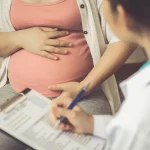Donating eggs is a transformative experience that not only affords intended parents the opportunity to establish families but also offers the donors substantial financial compensation. Numerous women are interested in learning about the egg donor compensation, requirements, and long-term advantages of donating an egg. If you are contemplating this route, knowledge about the egg donor compensation and the potential it presents can enable you to make an informed choice.
The money that comes in as a result of becoming an egg donor, what influences payment, and why this experience is rewarding and empowering.
Understanding Egg Donor Compensation
One of the most frequent questions future donors ask is, “How much will I be paid?” Egg donor compensation is influenced by geography, need, and donor type.
- In the majority of programs, egg donor pay is between $5,000 and $10,000 per single cycle donation.
- Experienced or special-profile donors can earn large sums of money, up to the highest egg donor compensation, and even more.
- Pay is a reflection of what is invested in terms of time, labor, and dedication, so it is a notable economic incentive.
Why Do Women Choose to Donate Eggs for Money?
The motivation for giving eggs isn’t just economic—most women are motivated by the opportunity to enable others to have the experience of parenthood. The economic incentive is, however, a real advantage.
Key reasons women choose to donate eggs:
- Financial Security – Donors utilize their pay to clear student loans, rent, or plan for long-term investments.
- Career or Education Assistance – Donors put the money towards college fees or professional training.
- Empowerment – Egg donation provides women with the ability to use their fertility as a chance to help others in addition to enhancing their financial status.
Factors Influencing Egg Donor Compensation
Not all donors are equally compensated. There are a number of different factors that can affect how much a donor is paid for each cycle.
1. Donor Profile
Education, health, medical history in their family, and distinct genetic characteristics may affect the level of compensation. For instance, donors from less common ethnic or high-demand backgrounds may be eligible for more compensation.
2. Geographic Location
Compensation is also higher in certain countries or cities where there is a higher demand for egg donors.
3. Experience
First-time donors typically receive average compensation, but repeat donors tend to be paid more since agencies and clinics appreciate their established record.
4. Age Range
Donors are generally best between 19 and 30 years of age since fertility is greatest and the quality of eggs is best during this period.
Highest Egg Donor Compensation: Who Qualifies?
The highest egg donor compensation is often reserved for donors who qualify under the following requirements:
- Uncommon health and family medical history
- Excellent academic record
- Uncommon or varied ethnic backgrounds
- History of repeat donations with satisfactory results
Donors who fit these criteria, in some instances, are able to earn more than the average $10,000 fee.
Financial Planning with Egg Donor Compensation
Egg donation can be a fine financial stepping stone when wisely managed. Most women use their funds to:
- Pay off student loans
- Invest in business ventures
- Travel and have life experiences
- Invest in long-term financial investments
Treating egg donor compensation as more than mere speedy money guarantees long-term financial gain.

Beyond Money: Emotional Rewards of Egg Donation
Although money is a big incentive, egg donation also equals emotional satisfaction. Donors get to be an important part of building families for couples or individuals who can’t have children on their own. This psychological reward, along with the financial reward, makes egg donation a very special experience.
Risks and Considerations
Similar to any medical procedure, egg donation involves risks and responsibilities. Prospective donors need to keep in mind:
- Medical testing and screening
- Time involvement for hormone injections and visits to the clinic
- Emotional preparedness for the process
Good centers offer complete medical care and counseling to inform donors and put them at ease at each step.
Final Thoughts
Being an egg donor is something greater than a monetary opportunity—yes, it is a life-altering experience that offers emotional fulfillment and financial independence. Whether for the purpose of funding education, helping your family, or merely to save for the future, the rewards of egg donation are well beyond financial compensation.
At Indian Egg Donors, we offer a secure, nurturing, and open forum for women wishing to donate eggs. Our mission is to support donors throughout the process and provide them with fair rewards and treatment. If you’re willing to help make a difference and understand the financial rewards of egg donation, we encourage you to join with us today.
Frequently Asked Questions (FAQs)
Q. How much is egg donor compensation?
Ans : Egg donor compensation typically is between $5,000 and $10,000 per cycle of donation, based on the donor’s profile and experience.
Q. What is the highest egg donor compensation available?
Ans : The highest egg donor compensation tends to go to donors with superior health, education, or uncommon ethnic backgrounds. Some are paid over $10,000.
Q. Can I donate eggs for money if I’m older than 30?
Ans : Most clinics like donors aged 19 to 30 years old because of better egg quality. Donors older than 30 years of age may not qualify.
Q. How many times can I donate eggs for money?
Ans : Most clinics permit donors to donate six times, provided they are healthy and comply with medical criteria.
Q.Is egg donor compensation taxable?
Ans : Yes, in most nations, compensation for egg donation is taxable income. It’s always best to get a tax professional’s advice when organizing your finances.

Dr. Veera Saghar
As an Egg Donor Coordinator, she plays a critical role in our company. Her background as a medical graduate from ISRA UNIVERSITY in Pakistan provides us with a solid foundation in the medical sciences. She has seven years of clinical experience practicing in the USA. This has given her firsthand experience when collaborating with patients and their families.
She is responsible for managing the process of egg donation from start to finish. We identify and screen potential egg donors.










